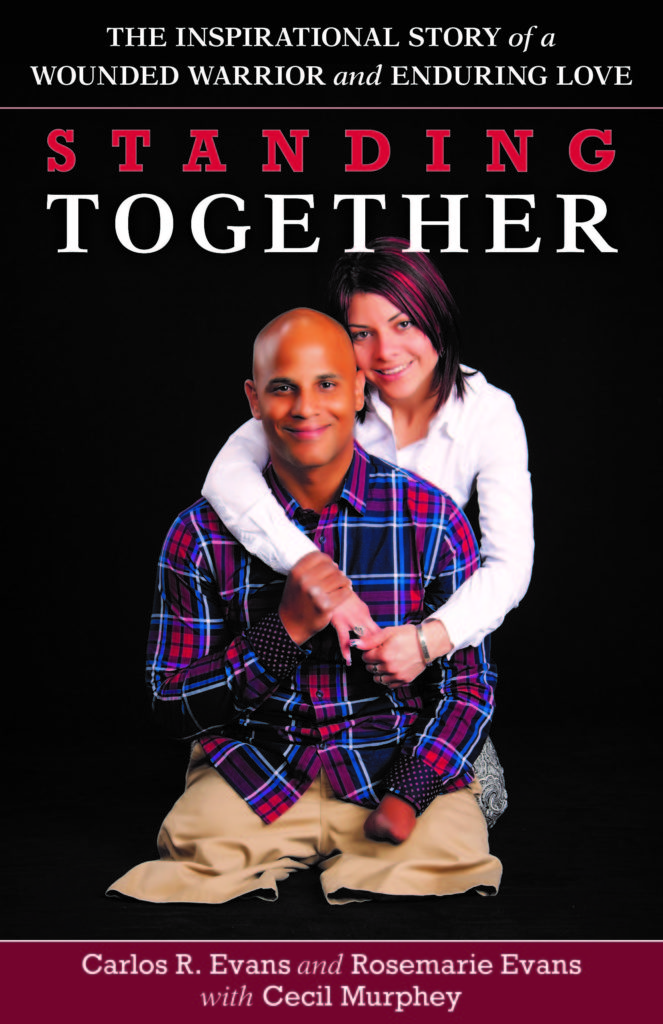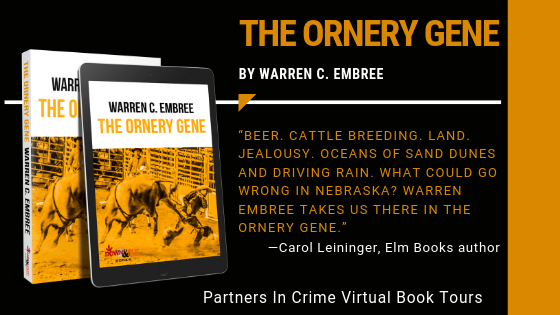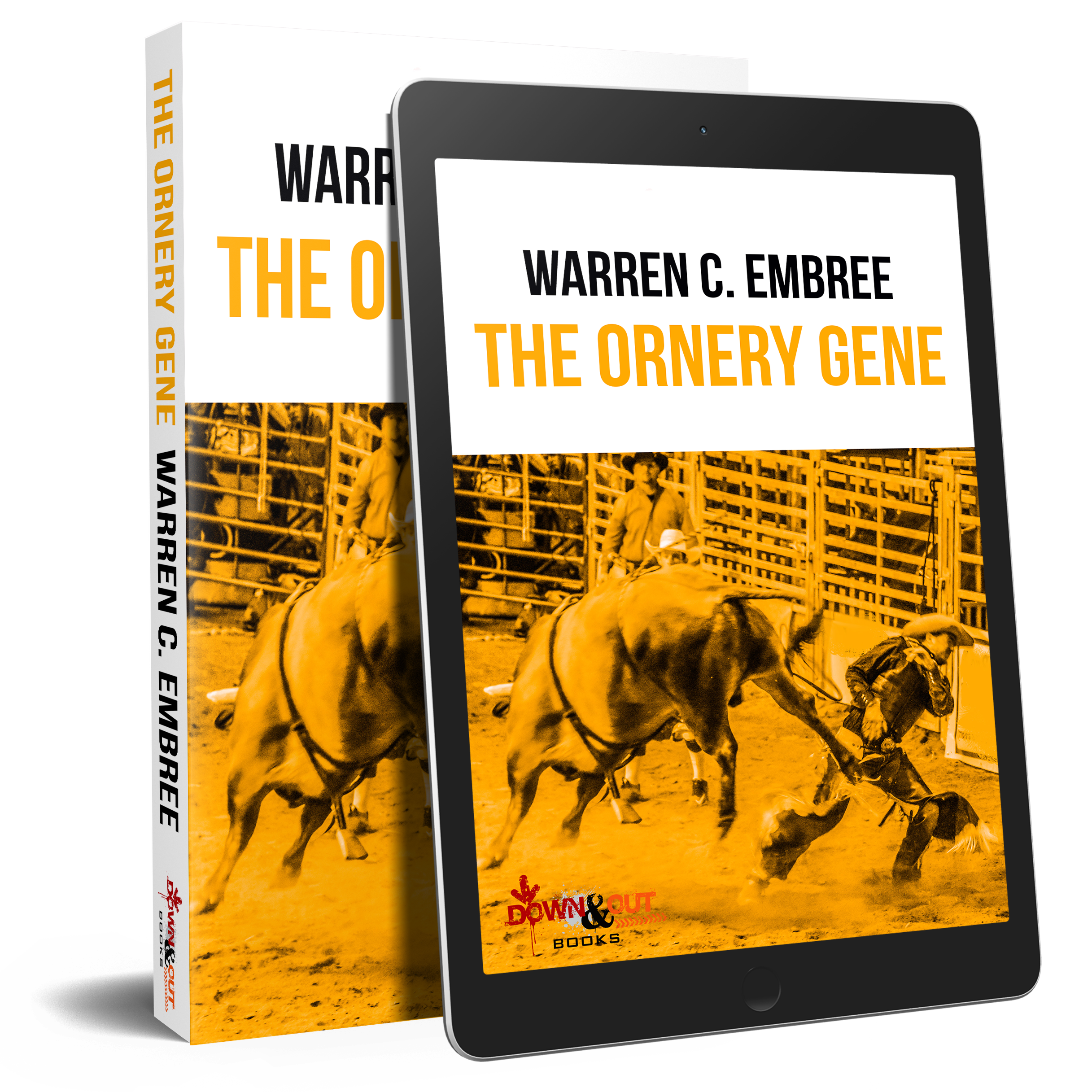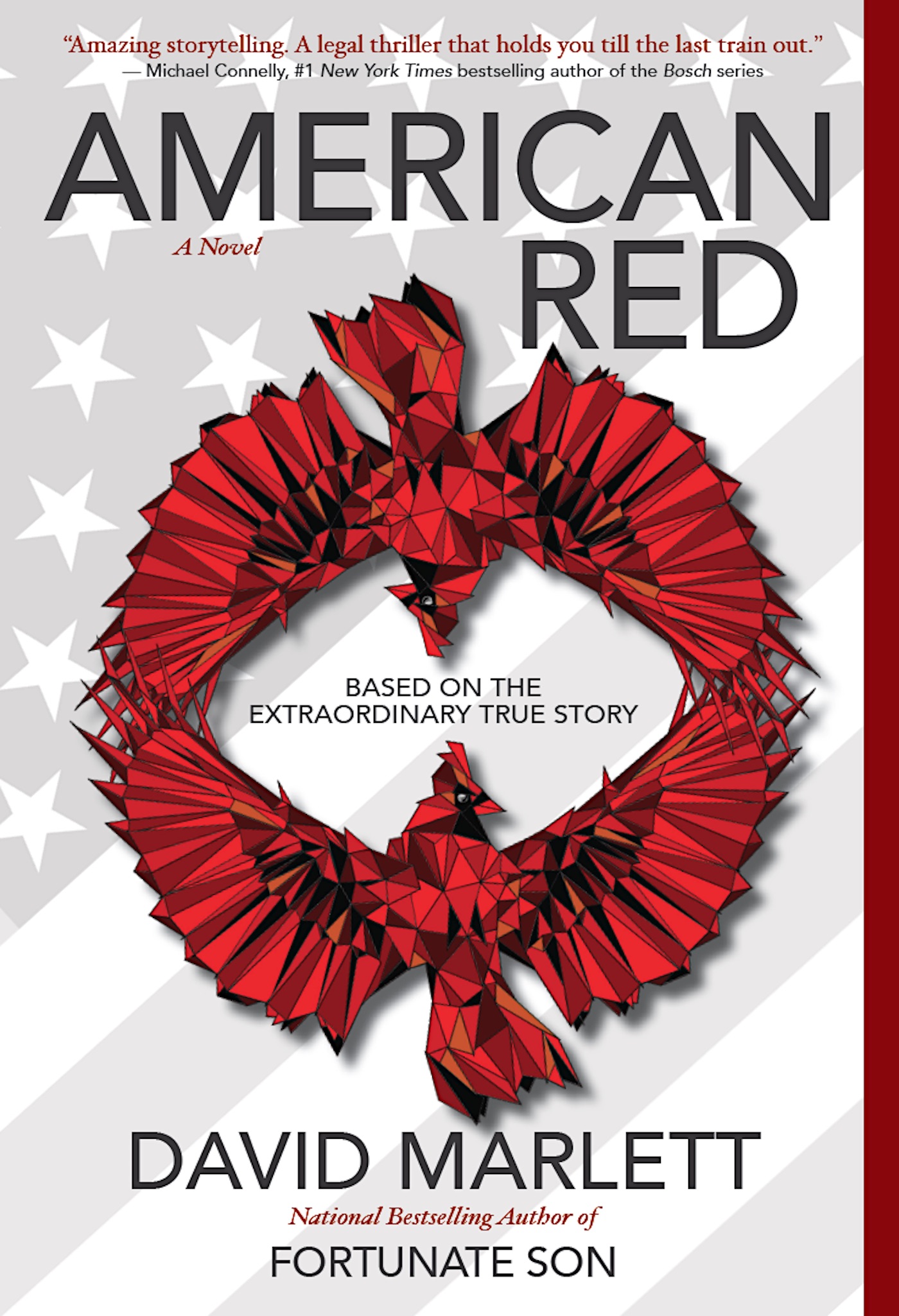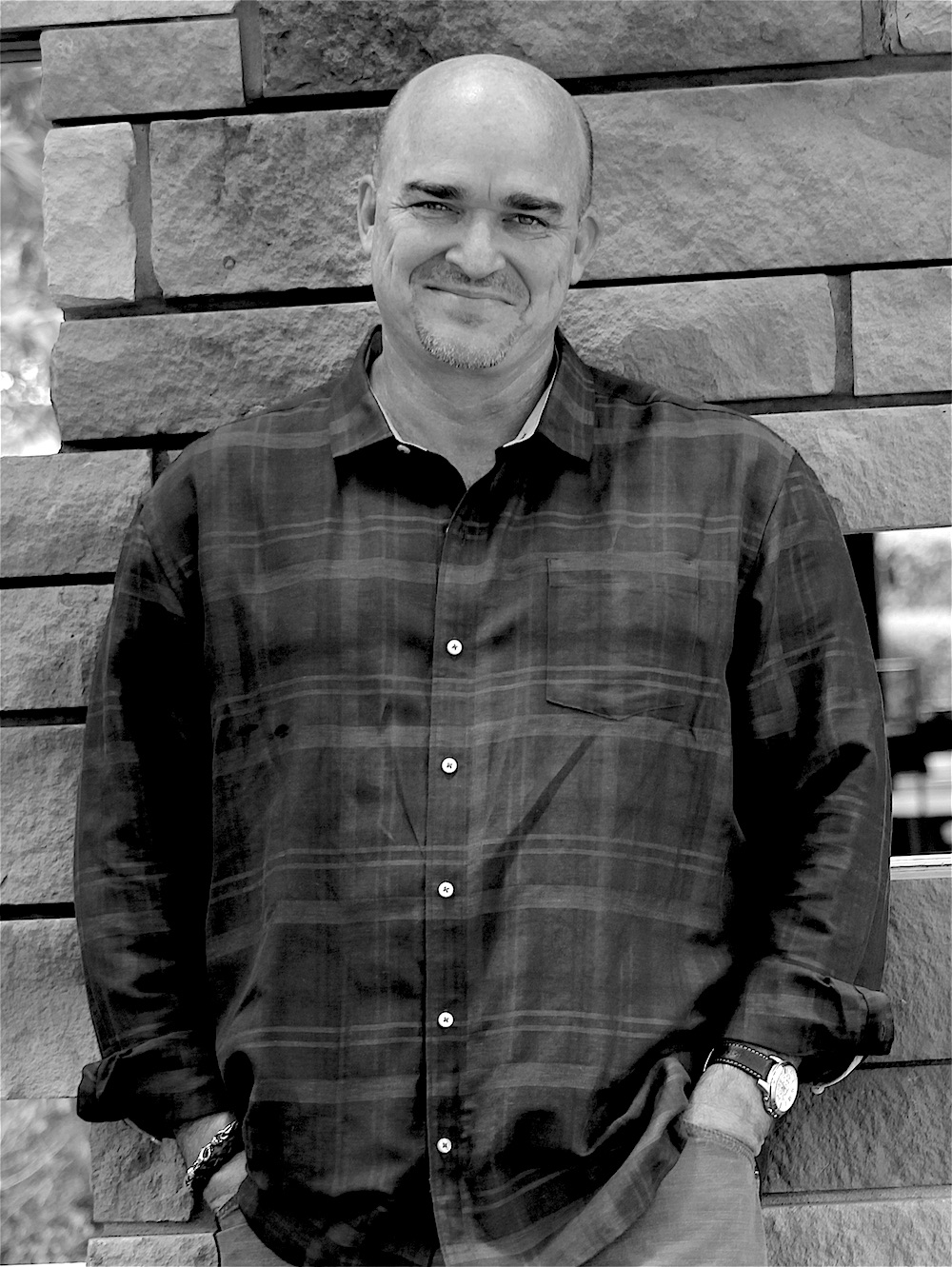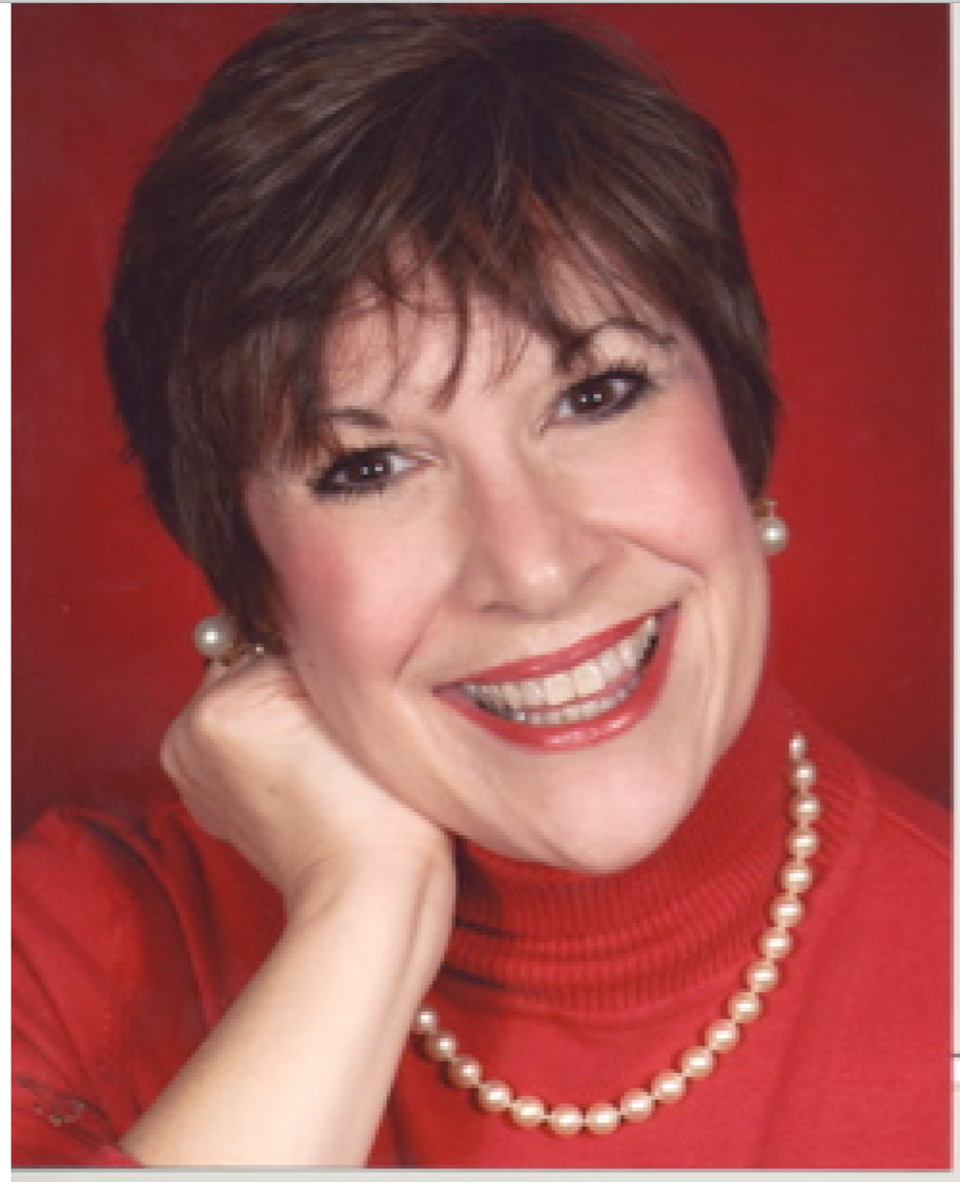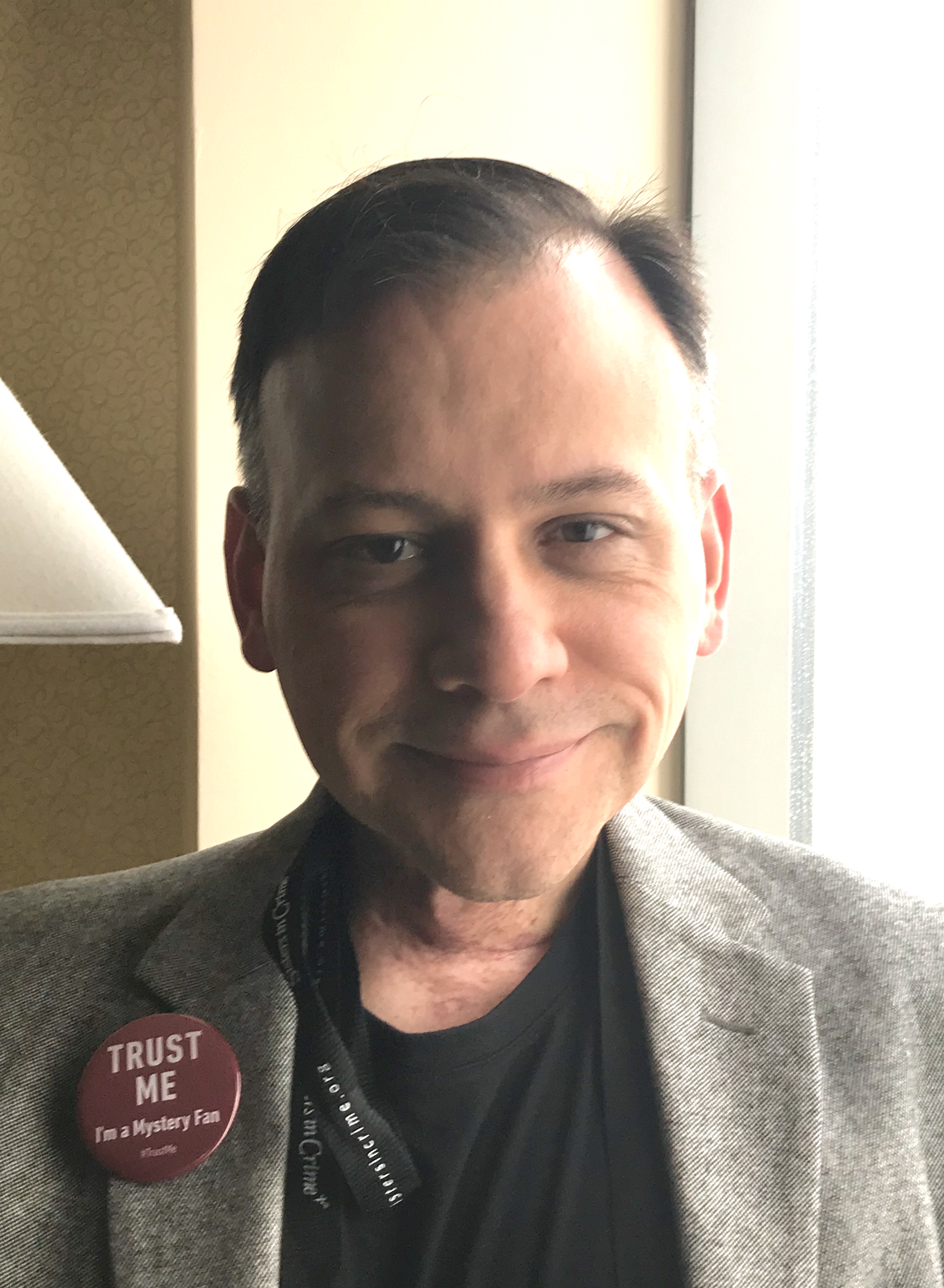I felt a little discouraged when I first saw this book. It’s huge. How was I ever going to get this all read?
It took a minute or two to get into it, but soon this book held me prisoner. I didn’t care if anyone needed to eat or wear clean clothes or whatever. I just wanted to keep reading.
I always learn so much from historical novels. This one really brought the Pinkertons to life for me. I got lost in the story and forgot it was based on real life experiences.
That changed when I reached the end of the book. I often don’t want books to end. I want to learn the rest of the story.
This book told me that. Don’t bother to check out the ending first. It really won’t mean all that much to you unless you’ve read the book.
Thank you, Mr. Marlett. I’m looking forward to reading many more books by you. But first, I plan to get my hands on Fortunate Son.
The lawyer lobbed a verbal spear across the courtroom, piercing the young man, pinning him to the creaky witness chair and tilting the twelve jurymen forward. Their brows rose in anticipation of a gore-laden response from the witness as he clutched his bowler, his face vacant toward the wood floor beyond his shoddy boots. When the judge cleared his throat, the plaintiff’s attorney, Clarence Darrow, repeated the question. “Mr. Bullock, I know this is a strain upon you to recount that tragic day when fifteen of your brothers perished at the hands of the Stratton-”
“Your Honor! Point in question,” barked the flint-faced defense attorney representing the Stratton Independence Mine, a non-union gold operation near Cripple Creek, Colorado. On this warm summer afternoon in Denver, he and Darrow were the best dressed there, each wearing a three-button, vested suit over a white shirt and dull tie.
The robed judge gave a long blink, then peered at Darrow. With a chin waggle, his ruling on the objection was clear.
“Yes, certainly. My apologies, Your Honor,” feigned Darrow, glancing toward the plaintiff’s table where two widows sat in somber regard. Though his wheat-blonde hair and sharp, pale eyes defied his age of forty-nine, his reputation for cunning brilliance and oratory sorcery mitigated the power of his youthful appearance: it was no longer the disarming weapon it had once been. No attorney in the United States would ever presume nascence upon Clarence Darrow. Certainly not in this, his twenty-sixth trial. He continued at the witness. “Though as just a mere man, one among all …” He turned to the jury. “The emotion of this event strains even the most resolute of procedural decorum. I am, as are we all, hard-pressed to-”
“Whole strides, shall we, Mr. Darrow?” grumbled the judge.
“Yes,” Darrow said, turning once again to James Bullock who seemed locked in the block ice of tragedy, having not moved a fraction since first taking the witness seat. “Mr. Bullock, we must rally ourselves, muster our strength, and for the memory of your brothers, share with these jurymen the events of that dark day. You said the ride up from the stope, the mine floor, was a swift one, and there were the sixteen of you in the cage made to hold no more than nine-is that correct?”
“Yes, Sir,” Bullock replied, his voice a faint warble.
“Please continue,” Darrow urged.
Bullock looked up. “We kept going, right along, but it kept slipping. We’d go a ways and slip again.”
“Slipping? It was dropping?”
“Yes, Sir. Dropping down sudden like, then stopping. Cappy was yelling at us to get to the center, but there was no room. We was in tight.”
“By Cappy you mean Mr. Capone, the foreman?”
“Yes, Sir. Our shift boss that day.” The witness sucked his bottom lip. “He was in the cage ‘long with us.” He sniffed in a breath then added, “And his boy, Tony. Friend of mine. No better fella.”
“My condolences,” said Darrow. “What do you think was the aid in getting the men to the middle of the cage?”
“Keep it centered in the shaft, I reckon. We was all yelling.” Bullock took a slow breath before continuing, “Cappy was trying to keep the men quiet, but it wasn’t making much a difference. Had his arms around Tony.”
A muscle in Darrow’s cheek shuddered. “Please continue.”
“So we was slipping, going up. Then the operator, he took us up about six feet above the collar of the shaft, then back down again.”
“Which is not the usual-”
“Not rightly. No, Sir. We should’ve stopped at the collar and no more. But later they said the brakes failed on the control wheel.”
“Mr. Bullock, let’s return to what you experienced. You were near the top of the shaft, the vertical shaft that we’ve established was 1,631 feet deep, containing, at that time, about twenty feet of water in its base, below the lowest stope, correct?”
“Yes, Sir. Before they pumped that water to get to em.”
“By ‘them’ you mean the bodies of your dead companions?”
“Yes, Sir.”
“Ok, you were being hoisted at over 900 feet per minute by an operator working alone on the surface-near the top of the shaft, when the platform began to slip and jump. Is that your testimony?”
“Yes, Sir.”
“That must have been terrifying.”
“Yes, Sir, it was. We’d come off a tenner too.”
“A ten-hour shift?”
“Yes, Sir.”
Darrow rounded on the jury, throwing the next question over his shoulder. “Oh, but Sir, how could it have been a ten-hour work day when the eight-hour day is now the law of this state?”
The defense lawyer’s chair squeaked as he stood. “Objection, Your Honor.”
“I’ll allow it,” barked the judge, adding, “But gentlemen …”
The witness shook his head. “The Stratton is a non-union, gold ore mine. Supposed to be non-union anyway. Superintendent said owners weren’t obliged to that socialist law.”
“Hearsay, Your-”
“Keep your seat, Counsel. You’re going to wear this jury thin.” Darrow stepped closer to the witness.
“Mr. Bullock, as I said, let’s steer clear from what you heard others say. The facts speak for themselves: you and your friends were compelled to work an illegal ten-hour shift. Let’s continue. You were near the top, but unable to get off the contraption, and it began to-”
“Yes. We’d gone shooting up, then he stopped it for a second.”
“”By ‘he,’ you mean the lift operator?”
“Yes, Sir. He stopped it but then it must have gotten beyond his control, cause we dropped sixty, seventy feet all the sudden. We were going quick. We said to each other we’re all gone. Then he raised us about ten feet and stopped us. But then, it started again, and this time it was going fast up and we went into the sheave wheel as fast as we could go.”
“To be sure we all follow, Mr. Bullock, the lift is the sole apparatus that hoisted you from the Stratton Mine, where you work?”
“Yes, Sir.”
“And the sheave wheel is the giant wheel above the surface, driven by a large, thirty-year-old steam engine, run by an operator. That sheave wheel coils in the cable”he pantomimed the motion-“pulling up the 1,500-pound-load platform, or lift, carrying its limit of nine men. And it coils out the cable when the lift is lowered. But that day the lift carried sixteen men-you and fifteen others. Probably over 3,000 pounds. Twice its load limit. Correct?”
“Yes, Sir. But, to be clear, I ain’t at the Stratton no more.”
“No?” asked Darrow, pleased the man had bit the lure.
“No. Seeing how I was one of Cappy’s men. Federation. And, now ’cause this.” His voice faded.
Darrow frowned, walked a few paces toward the jury, clapped once and rubbed his hands together. “The mine owners, a thousand miles away, won’t let you work because you’re here-a member of the Western Federation of Miners, a union man giving his honest testimony. Is that right?”
“Yes, Sir.”
Again, the defense counsel came to his feet. “Your Honor, Mr. Darrow knows Mr. Bullock’s discharge wasn’t-”
The judge raised a hand, took a deep breath and cocked his head toward the seasoned attorney before him. “Swift to your point, Mr. Darrow.”
“Yes, Your Honor.” Darrow’s blue eyes returned to the witness. “Mr. Bullock, you were telling us about the sheave wheel.”
“Yes. It’s a big thing up there, out over the top of the shaft. You see it on your way up. We all think on it-if we was to not stop and slam right up into it-which we did that day. We all knew it’d happen. I crouched to save myself from the hard blow I knew was coming. I seen a piece of timber about one foot wide there underside the sheave, and soon as we rammed, I grabbed hold and held myself up there, and pretty soon the cage dropped from below me, and I began to holler for a ladder to get down.”
“Must have been distressing, up there, holding fast to a timber, dangling 1,631 feet over an open shaft, watching your fifteen brothers fall.”
Bullock choked back tears. “Yes, Sir. That’s what I saw.” He paused. When he resumed, his tone was empty, as if the voice of his shadow. “I heard em. Heard em go. They was screaming. They knew their end had come. I heard em till I heard em no more.”
—
Excerpt from American Red by David Marlett. Copyright 2019 by David Marlett. Reproduced with permission from The Story Plant. All rights reserved.
Visit these other great hosts on this tour for more great reviews, interviews, guest posts, and giveaways!
